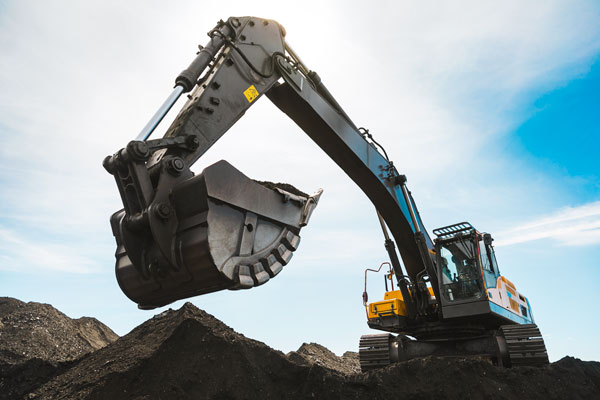STRUCTURAL, CIVIL AND MECHANICAL ENGINEERING
Building Services Engineers to keep your project safe and sustainable
Building Services Engineering Explained…
Engineering services for the construction industry come in many forms, and vary according to the need and nature of the project. The engineering services available in the construction industry include Structural Engineering, Civil and Mechanical Engineering. A vital function of these services is to provide detailed structural, mechanical and civil engineering reports for developers to work from. Combined, these services also form a discipline known as Building Services Engineering.
Building services engineers serve a very important purpose. They work to create a safe and comfortable environment within a building that is in harmony with the outside. They also focus on reducing a project’s environmental impact.
Engineers in the construction industry are becoming more focused on driving sustainability. Today they have a greater influence on the early stages of design than they did historically. Building Services Engineers combine multiple engineering disciplines to achieve a holistic approach to building design. Today, they often work closely with architects during conceptual and design phases to ensure the best roadmap for a project.
Structural, civil and mechanical engineers working within the building services discipline oversee the analysis, design, construction and maintenance of a build. They work together to look at external safety controls, and to make provisions for environmental protection. At the same time, they ensure the safety and comfort of a building’s occupants.
Building services engineers consider things such as ventilation and air conditioning, lighting and power, waste, water and fire services. They even work on a building’s security and access, energy management, structural integrity, and acoustics.
For these services to function correctly, complex calculations need to be applied and combined with original thinking and problem solving. Engineers are highly trained professionals who can do all of this and utilise innovative technologies to bring it all together. This also makes them extremely resourceful and creative! Regardless of their specialist field, all engineers have one common thread – they bring concepts and abstract ideas to life!
Building Services Engineers provide developers with recommendations and requirements via a series of detailed reports. A mechanical engineering report, a civil engineering report, and a structural engineering report are all examples of these.

Mechanical Engineering Services Report
A mechanical engineer is trained in the design, construction and use of machines. This means they look after all of the machinery that is used and installed within a property. Mechanical engineers are often considered to be the most creative of engineers. There is a high level of complexity to design and manipulate the systems that they work on.
 Examples of machinery that mechanical engineers work on include:
Examples of machinery that mechanical engineers work on include:
- Elevators
- Ducts
- Ventilation shafts
- HVAC equipment
- Pipes and pumps that connect independent systems
Our engineers are able to harness the power of computer model simulations to devise predictive planning. These kinds of simulations and related technologies are offered in a broad number of mechanical engineering scenarios such as the:
- Design of water pipes and sewage systems
- Design and installation of sprinkler systems
- Analytical planning of the equipment that powers sewage and sprinkler systems
- Selection of materials
- ‘Big picture’ planning and design to analyse the structural integrity of the property
The results of this planning are provided to you in the form of a mechanical engineering report. The report will also outline technical requirements and advise the latest mechanical engineering codes and standards.
 Civil Engineering Services
Civil Engineering Services
Civil engineers take the lead when it comes to the construction of infrastructure. The role of a civil engineer is to provide technical direction for design, construction and maintenance. They are trained to work on all types of structures including dams, bridges, roads, commercial and residential buildings.
Although the term “civil engineering” is broad, it can also refer to a specialist field. Generally speaking, those who work as civil engineers focus on horizontal structures such as land division, drainage, roads, dams and embankments. On the other hand, a structural civil engineer focuses on vertical structures such as buildings and bridges. The two specialties usually work side by side on a project.
Civil engineers are responsible for the design and management of sewerage systems, airports, gas and water supply, railways and airports. Civil engineers also work with the government and other large corporations. They inspect and assess large-scale building and construction projects and their environmental impact.
WOULD YOU LIKE A FREE CONSULTATION?
Have an idea or a project? Let’s collaborate!
 Structural Engineering Services
Structural Engineering Services
Civil engineers sometimes choose to complete further study that allows them to become a specialist in structural engineering. Structural engineers are concerned with the structural design and analysis of buildings, tunnels, bridges and other infrastructure of a vertical nature.
A civil engineer’s main focus is the design and planning of a proposed structure. However, a structural engineer focuses mainly on a structure’s strength and stability. Structural engineering does work on aspects of building design, but mostly from the perspective of structural integrity and choice of materials.
Structural engineers work from architect’s plans and drawings to determine whether the selected materials can support the proposed design.
 Civil and Structural Engineering Reports
Civil and Structural Engineering Reports
Local Approvals engineering services will provide comments, assessment and recommendations in a comprehensive civil engineering report.
A civil and/or structural engineering report will focus on the results of structural building inspections, advice and construction certification. It will also include an assessment of how the structure or project may affect the environment and the surroundings.
Because a civil engineering report identifies deviations from initial plans or assessments, it can often be used by a structural engineer too.
Civil engineers can also specialise in municipal projects, transportation and water supply distribution. Civil and public health engineers may also work in the public sector as consulting engineers in a wide range of projects. Therefore, the final content of a civil engineering report can vary greatly.
Structural Engineering Reports
A structural engineering report is a visual property inspection that evaluates the overall condition of an existing property. It considers the condition of the roof, foundation, floor and the building’s overall structure.
The main purpose of the report is to assess the structural condition of a property. It then outlines issues that need to be repaired. The report will cover inspection of the structural components that are visible including portions of the roof. Also included are visible internal and external load-bearing walls, floors, columns, beams and roof structure.
Please note that this report is only concerned with the structural integrity of a property. As such, it may not assess compliance with electrical codes. You will require a separate electrical code compliance inspection and report for this purpose.
Site conditions and safety concerns may limit the inspection of some areas of a building. For example, access to the roof or entry into a crawl space may require an additional fee. Please inform your engineer of any access issues prior to your inspection day.

Why Choose Local Approvals?
At Local Approvals, we work with Local Councils and Certifying authorities around New South Wales. We consist of ex-council Planners with years of experience, working in the same office as architects, engineers, and surveyors which means faster service for you or your business. We know what councils are looking for, which boxes to check, what format the reports should be formatted in, and how to present all this information.
When councils receive everything that they need in the format they need, the approval process can run much smoother.
